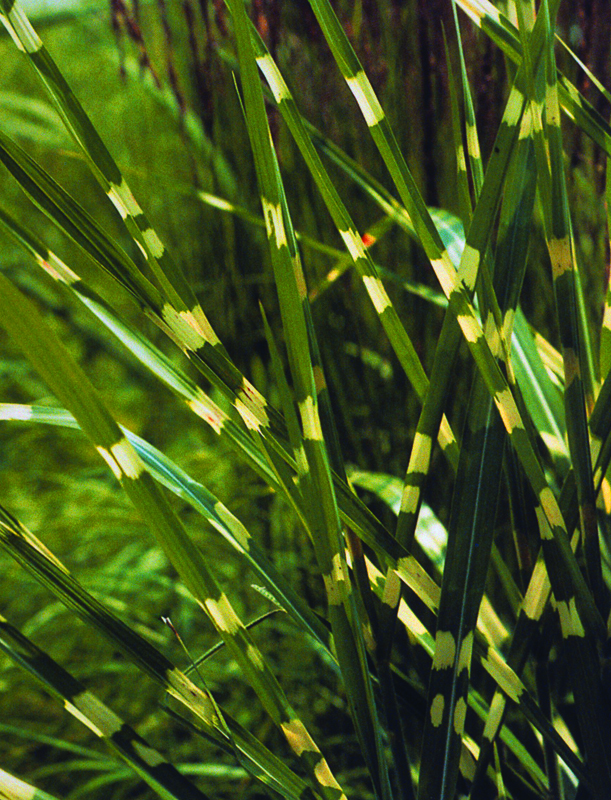| General Description | Miscanthus sinensis 'Zebrinus' is a clumping ornamental perennial grass with interesting green and white striped leaves that slowly spreads by short rhizomes. |
| ID Characteristic | Distinctly green and white variegated leaves, blooms from late summer through winter. |
| Landscape | A versatile winter interest plant. Use it to add architectural height, as an accent, en masse and as a screen. Has a tendency to flop without support, especially under snow. More suited to informal landscapes such as meadows, water peripheries and naturalized areas. |
| Cultivation | Grow in full sun, in moist, average soil. Tolerant of sandy and heavy clay soils as well as some shade, humidity, drought, erosion and air pollution. Best flowering and shape in full sun. Keeps its tight clumping form as it spreads. Foliage should be cut to the ground in late winter prior to the formation of new shoots but not before. May need to be staked to prevent flopping. |
| Pests | No serious pests or diseases of note. Miscanthus mealybugs and/or blight may be problematic. The bugs are hard to eradicate as they make their home inside the stems, causing stunted growth. Miscanthus blight is a fungus that affects the blades and sheaths. |
| Leaf Description | Long and narrow, dark green with horizontal golden yellow irregular striping, erect with a tendency to flop. |
| Flower Description | Pink- or copper-tinted turning silvery white in autumn, in long, soft plume-like inflorescence. On stalks up to 0.5 m above foliage clump. Persist into winter. |

